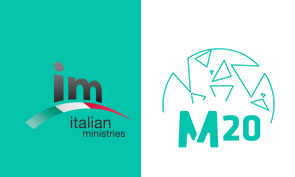The Lausanne Congress which met in Cape Town in 2010 was a remarkable event in that it brought together evangelical leaders representing ministry in 198 countries around the globe. It was probably the broadest cultural and international representative event of evangelical leaders in history.
During the course of the Congress, those present were asked what they thought were the key missiological issues which faced the global evangelical church at that time. Many of their responses are summarized in the actual document which came out of the Congress, the Cape Town Commitment. I would encourage you to read this to find out what evangelical leaders from around the world (65% of whom work in the majority world) believe to be the key missiological issues of the day. Amongst the thirty-two areas of need listed, these 10 were perhaps the most important.
UNREACHED PEOPLE GROUPS
Putting aside the concern about the term itself, the issue here is with those at the margins of our missionary endeavors. At the time of the Cape Town Congress, there were 300 people groups (i.e. groups of 100,000 people speaking the same language) who did not have the Scriptures, missionary presence, or a church in their culture. Today that number has been reduced to a little over 100. Many of these peoples are oral learners; valuing the spoken or sung word well over the written word.
UNIVERSITY STUDENTS
At this Congress, more than 65% of the speakers had benefitted from a university education. This was also the case in the 1974 Congress. This highlights the importance if not the uniqueness of investing university ministry.
REACHING PEOPLE FROM OTHER WORLD RELIGIONS
Especially the challenge to reach the world of Islam, Hinduism, Shintoism, Buddhism. Since 2010 there have been many Muslims from different cultures professing faith, but we are still waiting for a breakthrough. The same goes for the Buddhist, Shinto, and Hindu worlds.
WITNESS IN PUBLIC LIFE
The growth of the evangelical church worldwide (up from 6 million in 1910 to over 300 million in 2010) often reveals a lack of depth and a separation of personal godliness and engagement in public life. This needs to be reversed.
REACHING DISPLACED PEOPLES
This has become more urgent in recent days.
MEGACITIES
There are an increasing number of urban centers of at least 1 million people. Today there are 500 cities in the world with a population over 1 million. By 2050, 75% of the world will be living in urban centers.
ETHNICITY AND IDENTITY
Ethnic tensions have hindered the richness of the global church. We need to see that our identity lies primarily as being in Christ, rather than being Welsh, Persian, or American. At the same time, the New Testament church is revealed as being multi-ethnic rather than mono-ethnic. Mono-ethnicity can actually hide some of the wonder of the impact of the gospel.
THE QUESTION OF WHAT IT MEANS TO BE HUMAN
Increasing scientific and technological advances as well as factors like social manipulation etc. will bring pressure on the beginning and end of life questions. This is going to be a major issue in days to come. It seems the public perception of the person has never been more plastic.
PROSPERITY THEOLOGY
This theology has decimated the global church and led to an inadequate theology of suffering and an over-realized eschatology.
SCIENTIFIC MATERIALISM AND SECULARISM
Respectively, the beliefs that only that which is knowable through the natural sciences truly exists, and the belief that religion should have no place in the affairs of the state. Both beliefs have already damaged the confidence of young evangelicals, especially in the Western world. This will have implications for years to come.
By Lindsay Brown
